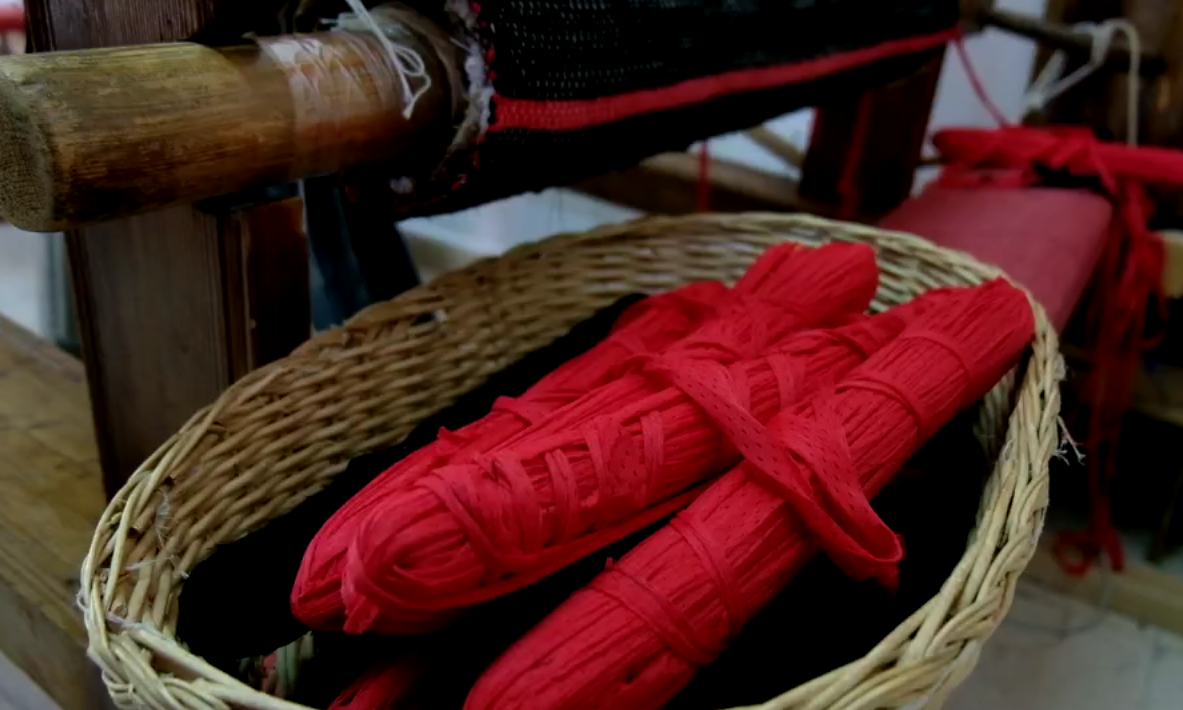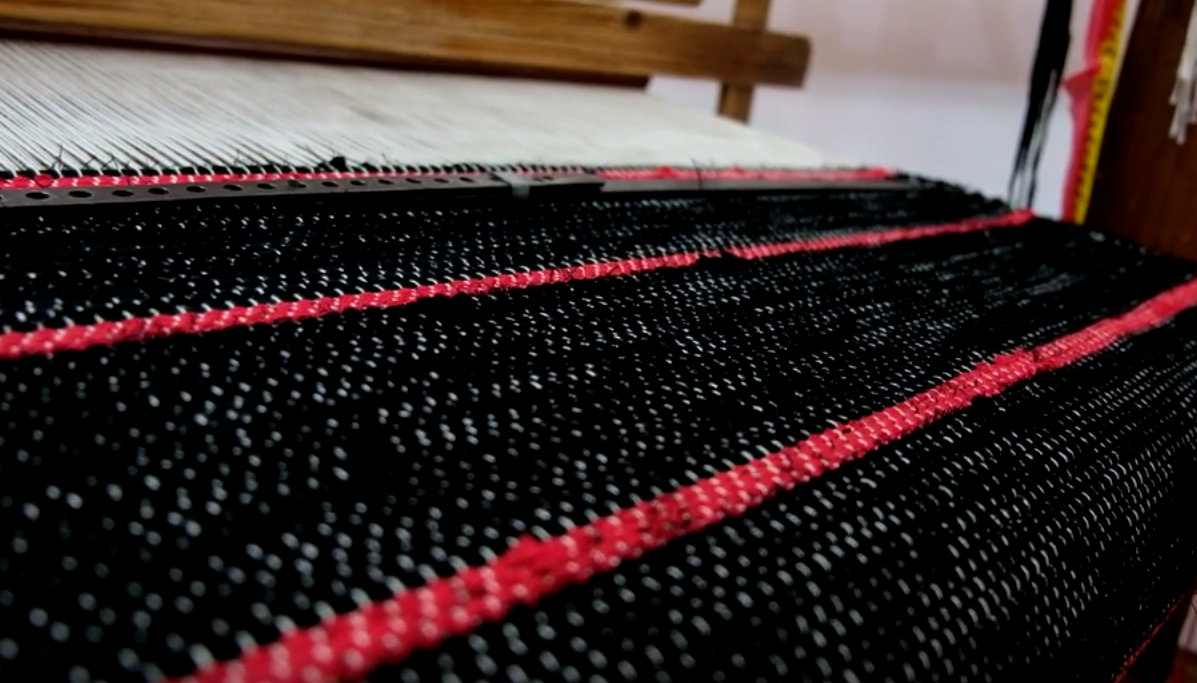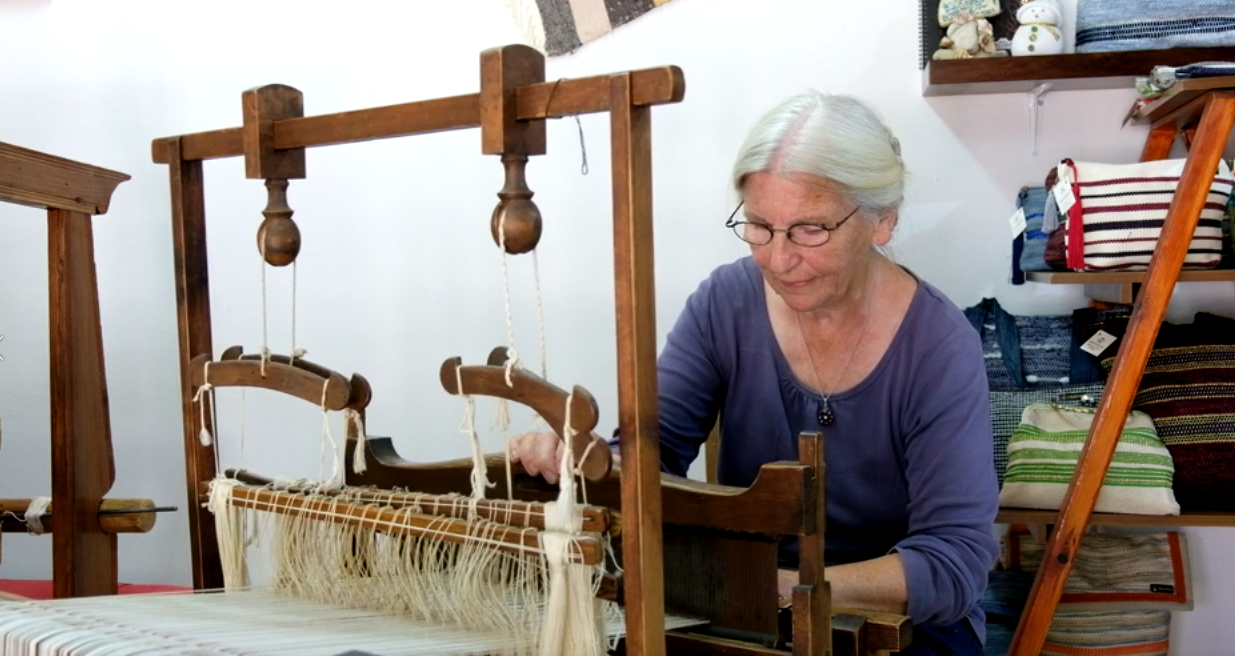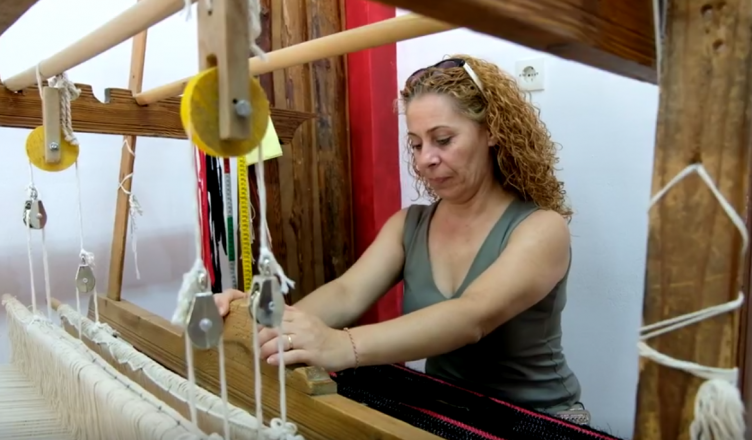In the modern technologically dominated world, traditional arts and professions gradually tend to become extinct, as the vast majority of people prefer to purchase standardized goods offered at low prices rather than handmade ones. In contrast to this tendency, fortunately there are people and organizations that try to preserve the Cultural Heritage artifacts and the way in which they are created, making them accessible to the next generation. One such typical example is the weaving workshop “Aretousa” situated near Archanes Village on the island of Crete, Greece.

History of the workshop
The weaving workshop “Aretousa” was founded on the occasion of some women’s participation in a weaving seminar provided by the Municipality. After the seminar had been completed, some women, who wanted to move forward and utilize the acquired knowledge, came up with the idea to set up a Social Cooperative Enterprise and create hand woven textiles using traditional looms. The start of the workshop was difficult enough for them, since they had to look for traditional, old looms in many storage rooms, an effort that required a huge amount of time because most of them had been burnt or thrown away over the course of time. At last, having found enough looms, they decided to set them up again, giving them life and making use of them in order for the traditional weaving to be revived.
Products
At the instigation of the Development Association of Women Entrepreneurs of Crete and having studied the market requirements and needs, namely what is in high demand and is more commercial, they tried to produce weaving textiles in more modern designs so that they can be used in today’s modern societies. Using recycled clothes as the main raw material and preserving the tradition and the way our grandmothers used to weave, they construct more modern artifacts, such as laptop bags, mats, tablecloths, place mats, purses and various others that can be held by a modern woman or can be laid in modern homes. Some innovations in the field of weaving are also applied in the workshop; women are able to weave both double-sided carpets, which have different colours on the top and at the bottom, and double-width carpets, which means that a carpet of 80 cm can become 1.60 cm.

Mrs Andie, the cooperator of “Aretousa” Workshop
“Aretousa” Workshop collaborates with the craft instructor Mrs. Andie from the Netherlands, who teaches the women in various techniques of her homeland. As Mrs. Andie says: “What I admire is the way women here use the old looms and make textiles of such quality that does not exist in the Netherlands. The only thing that makes me sad is that the original, old wool we have at our disposal decreases. Thus, I would like to make wool from Cretan sheep and prepare it for the loom. Therefore, I try to wrap wool and I discovered that the Cretan one is very useful. Furthermore, it is crucial people be capable of distinguishing the good from the bad one. Unfortunately, the technical knowledge has died off over the years and now I am trying to discover it again.”

To recapitulate, the Social Cooperative Enterprise founded by women aware of the traditional way of weaving succeeded in preserving a traditional job, which mainly flourished in the past, by adjusting it to the needs and requirements of modern societies, intertwining tradition with fashion.

